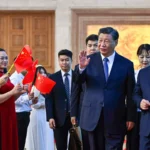Health professionals in India are raising concerns, especially regarding men’s health. A recent study published in The Lancet paints a troubling picture: obesity rates are climbing rapidly, posing significant risks to men. Experts stress the need for immediate lifestyle changes.
The study highlights a sharp rise in obesity across India. Over 30% of adults are now categorized as overweight, with men making up a large share. Urban areas show higher rates, but rural communities aren’t far behind. Obesity has been linked to serious health problems like heart disease, diabetes, and strokes, with men facing unique challenges due to their biology and habits.
Dr. Sanjay Verma, a cardiologist based in Delhi, describes obesity as a “silent killer.” He explains that men often overlook weight gain, dismissing it until it leads to severe health issues. This tendency is partly cultural, as many men prioritize work over health. Sedentary lifestyles in cities, combined with the widespread availability of fast food, only worsen the problem.
The data from The Lancet shows that more than 25% of Indian men now exceed healthy BMI levels. This is not just a matter of appearance—excess body fat, particularly around the abdomen, increases risks of insulin resistance and heart attacks. In fact, the study notes a 20% rise in deaths linked to obesity in recent years.
Diabetes India
Experts point out that men’s fat distribution—primarily in the abdominal area—makes it harder to lose weight. Social habits like frequent alcohol consumption and late-night eating further contribute to the issue. While gym culture is growing, many men lack the time or motivation to adopt regular exercise routines.
Nutritionist Dr. Priya Sharma emphasizes that many men underestimate the impact of their diets. She notes a decline in home-cooked meals, with junk food becoming the easier choice. She often sees male patients in their 30s who complain of fatigue and breathlessness, only to find their blood tests reveal high cholesterol and early signs of diabetes.
The study also highlights larger systemic challenges. Obesity screening isn’t common, public awareness is low, and men rarely seek medical help early. Stigma adds to the problem, as weight gain is often joked about rather than addressed seriously.
India’s economic growth is another factor. As disposable incomes rise, fast food chains are expanding, and traditional diets are being replaced by processed and packaged foods. Sugar consumption has also skyrocketed, contributing to the obesity epidemic.
Physical inactivity compounds the issue. According to the study, only 15% of Indian men engage in regular exercise. Long work hours, daily commutes, and limited access to parks or gyms leave little room for physical activity. While rural men tend to get some exercise through manual labor, it isn’t enough to counteract other risks.
Priorities Health
Dr. Anil Gupta, an endocrinologist, warns that the consequences of obesity extend beyond individuals, placing a strain on families and the economy. He advocates for proactive measures like nutrition education in schools and workplace wellness programs. Encouraging men to prioritize their health is essential.
The study also points to potential solutions. Community initiatives and awareness campaigns have shown promise. Online fitness challenges and social media trends are helping spread simple, effective strategies. Experts like Dr. Meera Patel encourage small, manageable changes such as daily walks, reducing sugar intake, and practicing portion control.
Cultural shifts are slowly beginning to take hold. Fitness influencers are motivating men to adopt healthier habits, yoga is gaining popularity, and more corporate gyms are opening. However, challenges like limited access to trainers in rural areas and the higher costs of healthy foods remain obstacles.
The study also draws attention to the link between obesity and mental health. Stress from work, emotional eating, and depression create a vicious cycle that leads to further weight gain and declining self-esteem. Experts recommend holistic approaches, including therapy, nutritional guidance, and physical training, to address these interconnected issues. Support from families and communities can make a significant difference.
Government intervention is critical. Experts suggest taxing junk food, subsidizing healthier options, building more parks, and improving school meal programs. Basic healthcare services should also prioritize early detection and prevention.
Rising Obesity Rates
Dr. Rajesh Kumar, a policy analyst, points out that public health campaigns often focus on women, leaving men underserved. He suggests creating programs specifically tailored to men, such as free health checkups and workshops to promote healthier lifestyles.
The findings from The Lancet mirror global trends but highlight unique challenges due to India’s rapid urbanization. Men bear the brunt of these changes, as health systems struggle to keep up with rising obesity rates.
Real-life stories emphasize the urgency of the problem. Ramesh, a 40-year-old from Mumbai, gained 20 kilos over a decade due to desk work and stress. A heart scare prompted him to take action, leading to significant weight loss through exercise and dietary changes. “I wish I had started sooner,” he says. Unfortunately, many others aren’t as fortunate, with undiagnosed conditions like diabetes and heart disease cutting lives short.
Health experts stress the importance of early action. Simple steps like regular BMI checks and monitoring waist size can prevent serious complications. Routine tests for blood sugar and cholesterol are critical in identifying risks before they escalate.
The study has sparked debate, with some arguing men face unfair blame. However, the data clearly shows that men’s obesity rates are climbing faster than those of women, warranting targeted efforts.
Social media is playing a role in spreading awareness, with hashtags like #MensHealthIndia gaining traction. Men are sharing weight-loss journeys and fitness tips, but long-term change requires breaking deeply ingrained habits.
Adopting Healthier Habits
Rural men face unique challenges such as limited access to healthcare and a growing shift from traditional diets to processed snacks. While technology offers some hope—through fitness apps, telemedicine, and wearables—cost remains a barrier for many.
The study emphasizes the need for inclusive strategies, recognizing that obesity affects men of all ages. Younger men benefit from early education, while older men require tailored support. One-size-fits-all approaches simply won’t work.
Dr. Sharma shares an example of Vikram, a patient who successfully lost weight by making small, consistent changes, like walking daily and cutting out soda. His progress has inspired others in his community.
Stories like Vikram’s show that change is possible. Men can adopt healthier habits with the right support, whether it’s friends joining them for workouts or family members cooking nutritious meals. Small victories build confidence and lead to lasting results.
While India’s obesity crisis mirrors global patterns, the speed of its rise demands urgent attention. Experts agree that increasing awareness, providing clear guidance, and implementing supportive policies are the way forward.
Men in India are at a crossroads. Ignoring obesity comes with serious risks, but taking even small steps today can lead to a healthier, longer life. The study serves as a wake-up call, reminding men that they have the power to rewrite their health stories. Change doesn’t have to be overwhelming—it starts with one step.
Related News:
Fake Doctor Arrested in India After 7 Patients Die After He Performed Heart Surgeries

Geoff Thomas is an award winning journalist known for his sharp insights and no-nonsense reporting style. Over the years he has worked for Reuters and the Canadian Press covering everything from political scandals to human interest stories. He brings a clear and direct approach to his work.














